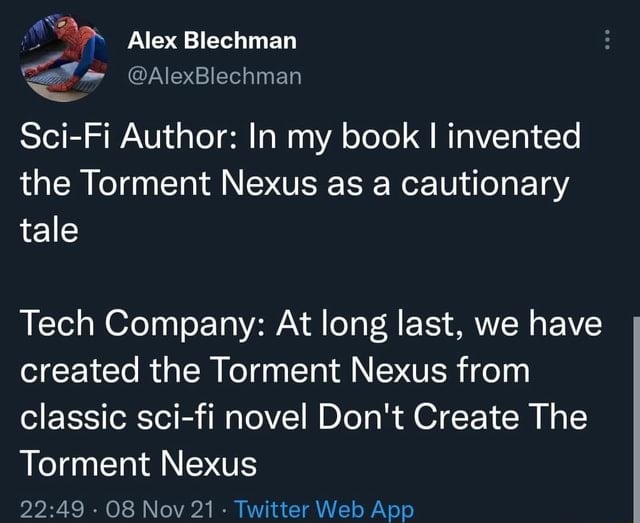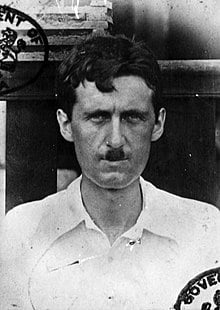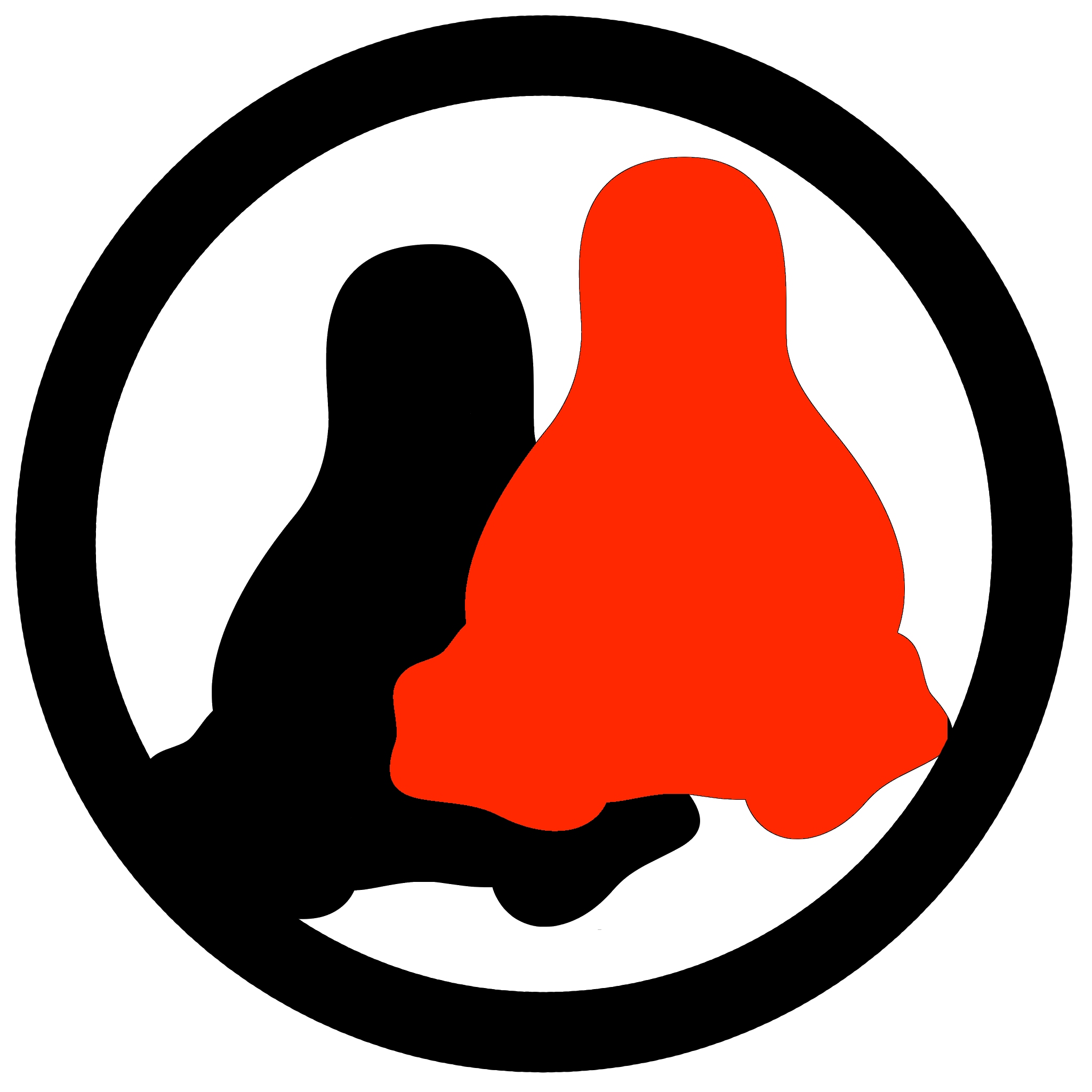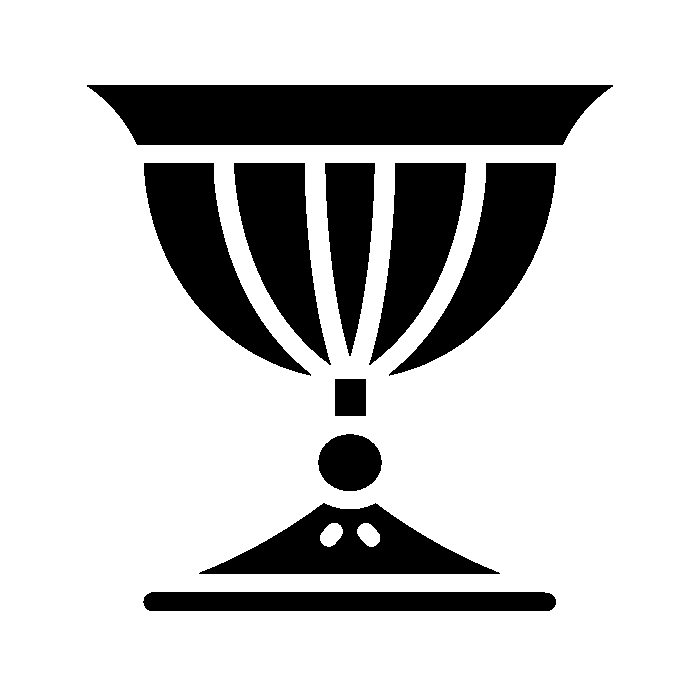deleted by creator
Yeah, more like this guy was right.

Every day Huxley is proven more correct than Orwell because through the magic of SOMA (addictive phones hitting dopamine rushes), people can be surrounded with the truth and completely ignore it, and as you said, pay for the privilege of being lied to because it feels nice. (And oh man, that’s a major industry on OnlyFans, being lied to because it feels nice)
Huxley understood our desires could break us more than our hate.
I can’t find it, but I recall an interview with Zizek around when Snowden dropped his leaks, and it was about how it really changed nothing, and he was noting how the revelations of torture during the Iraq War had changed nothing either. He thought disclosure was a moot point now, society was checked out. He was right.
The “Amusing Ourselves to Death” comic does a good job showing how Huxley did a better job predicting the future.

It seems to me that they were both right. If I didn’t know better, I’d be inclined to think that the wealthy and powerful used their works as a roadmap instead of a warning.

The fascist jocks think Orwellian tactics will work because they get to run around hurting people in the process. The fascist nerds think the Huxley addiction to distraction will work because they get to sell billions of dollars of ads in the process.
They’re both fascists though, and something is going to have to happen to change that.
They were both right. The very first point aged incredibly poorly, considering how many books are banned nowadays.
They were both right - it’s just that Orwell’s prophecies manifested in east while Huxley’s did in the west.
In 2019, Giorgio Agamben gave a week of lectures in Berlin. In the middle of it, he suddenly paused and said: “I hope that everyone in this room realizes that all political action has become impossible.” He meant that political action is no longer possible because we are governed by economic powers.
They were both right. I wouldn’t say either was more right actually. If you merge both of their worlds, you get pretty close to what we’re living in.
Brave New Wolrd and Farnheit 451 with Handmaid’s Tale…I mean, even Zuckeberg with Meta is trying to be the villain ceo of Ready Play One.
Edit: https://lemm.ee/post/53222800 These post is relevant to this discussion.
Specially the comment from jagged_circle@feddit.nlGood callout to Fahrenheit 451. I think Beatty’s monologues are pretty important because they’re strongly argued. His positions aren’t wholly irrational, he has given it careful, deliberate thought for a long time. The first time I read it I recall feeling compelled and almost convinced by his arguments, which is such a beautiful way to express it. Bradbury literally argues against the existence of the book Fahrenheit 451 itself, his own competing ideas that someone else would want to erase, through Beatty’s monologues. He made a compelling argument for it, too. All the books disagree, so what even is truth?
Knowing how to be psychologically resilient against such arguments is important, I think.
Now that we’re adding more dystopian books to the thread I’d like to shout out to Kallocain (1940) by Karin Boye. It’s more of a totalitarian state similar to 1984 but has an aspect of truth drugs, a hot topic back then, and thought criminalization.
Kallocain
However, unlike Brave New World in which a drug is used to suppress the urge to nonconformity generally, a drug in Kallocain is used to detect individual acts and thoughts of rebellion.
Interesting, shades of Severance. The severing of parts of their life achieves a similar result of preventing (instead of detecting) individual acts and thoughts of rebellion.
…and they line up around the block to get the new ones that can see and hear them even better. Our timeline’s version has access to our fingerprints, can identify our faces from millions of others, know our hobbies, our work schedule, our political leanings, etc, etc. We’re deep in this nightmare.
I think Orwells Animal Farm describes the current situation in the US better. There might be less communism but some things (like the TikTok ban) seem to be stolen directly from the book.
Yelling at a homeless person for owning a telescreen.
Mostly the part where words don’t mean anything and reality is crafted by the oppressor.
Reality has always been crafted by the oppressor. It’s an inherently oppressive concept. http://soulism.net/
No man, not all at.
Not only that, but Orwell has become a dog whistle of the right complaining about social justice issues of the left.
Orwell predicted big brother that was an allegory for communism. Where they threw you in jail for wrong think. Hence why the far right love talking about him.
Imo what we are seeing is far closer to the slow collapse of an empire. The overall process is decay, where it’s like a free for all and crabs in a bucket mentality.
Bottom line is, things are falling apart due to incompetence, not a very competent entity taking full control.
Orwell was a leftist who wrote from a leftist perspective. 1984 is about Stalinism specifically and totalitarianism generally. It is not about communism, unless your definition of “communism” only includes the Soviet variety.
I’m not saying Orwell is only about communism, I’m actually agreeing that Orwell’s book was something rather specific that doesn’t apply 100% to today.
Today’s situation is shaping to be more like the Wild West where anything goes as long as your rich enough instead of a single omnipresent entity having full control.
Except that the oligarchs are now using the legal system to create an oppressive regime for the working class. In the meantime they’ll get to stabbing at each other. In the end, monarchy will remain.
Monarchism is the only end for capitalism (according to Marx’ Das Kapital …and the steady march of history has been consistent so far with this). So for those who disparage capitalism, they’re choosing the despotic totalitarian situation that Washington fought against during the origin of the US.
Oh I 100% agree that feudalism is the end goal of capitalism, I actually think the US is getting too unstable for that. Imo civil war is closer than full on dictatorship, or at least I hope so.
Fair enough, I agree with you. Orwell lacked imagination and was waaay too focused on Stalinism to see what horror was already shaping in the West.
Orwell was a leftist
He was a liberal who operated as an agent of an oppressive fascist government and developed pangs of remorse, which he then translated into his writings.
Also, not to be totally essentialist, but…

Come on. The dude even looks like Hitler.
Bottom line is, things are falling apart due to incompetence, not a very competent entity taking full control.
That’s the only thing that gives me hope about us coming out the other side of this as recognizably the same nation that went into it.
I get your other points, but (as I addressed elsewhere in the discussion) I find it “close enough” for my purposes.
I mean, yeah, most cautionary tales have common themes.
In most terrible situations, you’ll often find tyranny in some shape or form.
Imo what we are seeing is far closer to the slow collapse of an empire.
Which, in fairness, 1984 effectively documents.
But Orwell clings to the idea that this collapse (a collapse that his own country of England was already sliding down) was something that could carry on forever. You could keep cutting those chocolate rations year after year and keep throwing away your youngest generation in war after war and keep churning out revisionist history after revisionist history and nothing would ever really change.
Orwell could predict the fall in the States (because, again, England in the 1950s was in the thick of exactly this revanchist totalitarian Red Scare crisis) but he couldn’t see where it all would end.
Bottom line is, things are falling apart due to incompetence, not a very competent entity taking full control.
One could argue that the consolidation of power into an increasingly remote and schloratic aristocracy will inevitably produce incompetent leadership. As voting districts get larger and elected leaders become more insulated from their constituents, they stop responding to the material conditions in their domains.
And as residents grow more hostile to the fumbling, self-important bigots managing the territory, you see vigilante acts that cause the leadership to retreat further and imposing increasingly stringent loyalty tests on their deputies and bureaucrats.
The focus of effort becomes suppressing dissent rather than fixing underlying economic conditions. So more and more resources go into policing, spying, fencing, and propagandizing.
This isn’t a single individual’s failure (even of you could find a host of singularly foolish, craven, or incompetent individuals) but a function of an aristocracy consumed by paranoia in a society with a shrinking supply of economic goods to spread around.
I think Brave New World is a better depiction of where we are at.
Orwell - "the party told you to reject the evidence of your eyes and ears. It was their final, most essential command”
Huxley - “the perfect dictatorship would have the appearance of a democracy, but would be basically a prison without walls, in which the prisoners would not even dream of escaping. It would essential be a system of slavery where, through consumption of entertainment, the slaves will live their servitude”
I would agree
Exactly like the PRC and Russia. WTF AmeriKa.
1984 is obviously influenced by brave new world
Orwell lived through the fucking holocaust and couldn’t call a future of eugenics. Embarrassing.
We read both of those during the same year of school and then compared and discussed. To be honest, there’s elements of both that describe our times.

“What am I, chopped liver?”
😆
Chat, is this real?
I think that’s Michael Palin.









